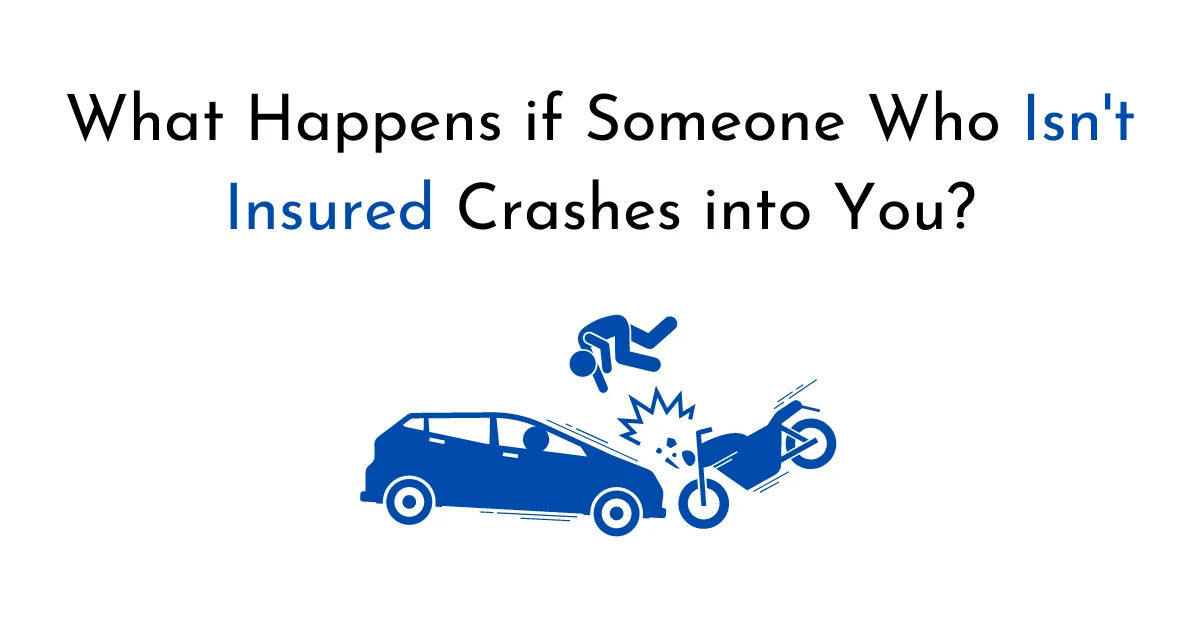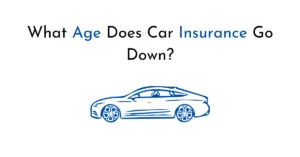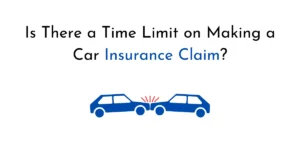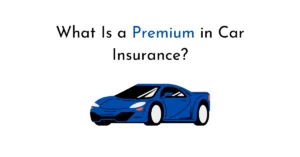Car accidents can happen unexpectedly, and dealing with the aftermath can be stressful. But what if the person who wrecks your car isn’t on your insurance policy?
In this article, we will explore the implications of such a situation and provide guidance on what steps to take. Whether you reside in the UK or elsewhere, it is important to understand your rights and responsibilities in these circumstances.
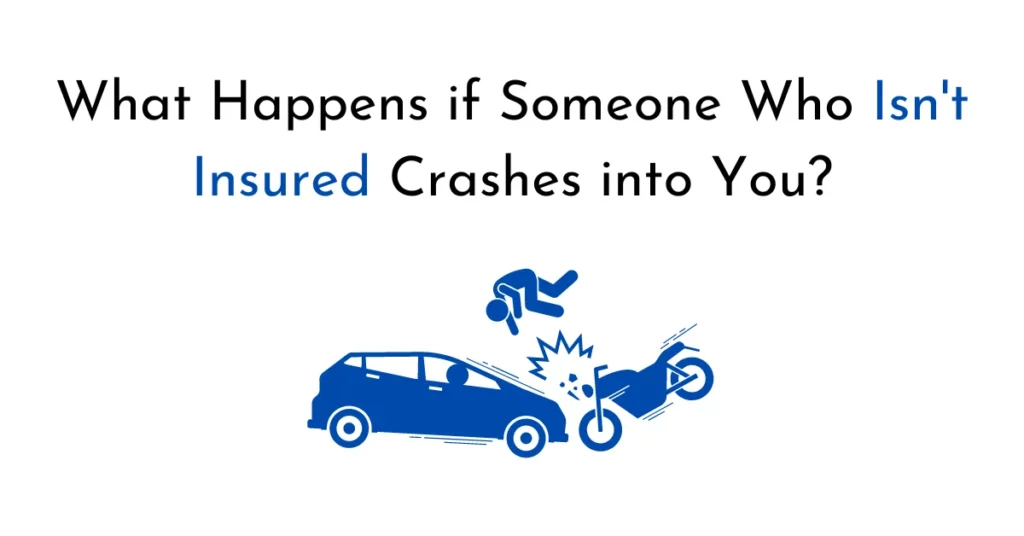
What Happens if Someone Who Isn’t on Your Insurance Crashes Your Car in the UK?
If someone who isn’t listed on your insurance policy is involved in an accident with your car in the UK, the following scenarios may occur:
- Insurance Coverage: In most cases, insurance policies cover the vehicle and not specific drivers. Therefore, if the person driving your car is not on your insurance, the policy may still provide coverage for the damages caused to your vehicle. However, it is important to review your insurance policy to confirm the extent of coverage in such situations.
- Excess Payment: Depending on your insurance policy, you may be required to pay an excess amount when filing a claim. This excess amount is typically specified in the policy terms and conditions. If the person driving your car is at fault for the accident, you may have to pay the excess amount.
- Loss of No Claims Bonus: If the accident was caused by the person who isn’t on your insurance policy, it may result in the loss of your no claims bonus. This can lead to an increase in your insurance premium during the next renewal.
- Legal Implications: If the person driving your car without insurance causes an accident, they may face legal consequences, such as fines, penalty points on their driving license, or even disqualification from driving. It is crucial to report the incident to the police, especially if the person driving your car is uninsured.
What Happens if Someone Who Isn’t Insured Crashes into You?
If an uninsured driver crashes into your car, the consequences can vary depending on your location and insurance policy. In the UK, the following situations may arise:
- Uninsured Driver Agreement: In the UK, the Motor Insurers’ Bureau (MIB) operates the Uninsured Driver Agreement. This agreement helps compensate victims of accidents caused by uninsured drivers. If you are involved in an accident with an uninsured driver, you may be able to make a claim through the MIB for compensation.
- Your Insurance Coverage: If you have comprehensive insurance coverage, your policy may cover the damages caused by an uninsured driver. However, you may still need to pay the excess amount outlined in your policy. It is advisable to contact your insurance provider to understand the specifics of your coverage.
- Civil Lawsuit: If the uninsured driver cannot compensate you for the damages, you may consider pursuing a civil lawsuit to recover your losses. Consulting with a legal professional can help you navigate the legal process and determine the best course of action.
Are You Liable If Someone Drives Your Car Without Insurance?
As the owner of the vehicle, you may be held liable if someone drives your car without insurance. In the event of an accident, the following considerations may apply:
- Third-Party Damages: If the person driving your car causes an accident and damages someone else’s property or injures another person, you may be held liable for the resulting costs. In such cases, your insurance coverage may help protect you from significant financial burdens.
- Legal Consequences: Allowing someone to drive your car without insurance is illegal in many jurisdictions, including the UK. If caught, both you and the uninsured driver may face penalties, including fines and potential legal consequences. It is essential to ensure that anyone driving your car is properly insured to avoid these risks.
- Voiding of Insurance Coverage: Allowing an uninsured driver to operate your vehicle may also void your insurance coverage. If your insurance provider discovers that an uninsured driver was using your car at the time of the accident, they may deny your claim and refuse to provide coverage for the damages. This can leave you personally responsible for all costs associated with the accident.
Who Pays If Someone Crashes into Your Car?
If someone else crashes into your car, the following scenarios may determine who pays for the damages:
- At-Fault Party’s Insurance: If the other driver is at fault for the accident, their insurance should cover the damages to your vehicle. You can file a claim with their insurance company to seek compensation. It is important to gather evidence, such as photographs, witness statements, and the police report, to support your claim.
- Uninsured At-Fault Party: If the at-fault driver does not have insurance or flees the scene, you may have to rely on your own insurance coverage. If you have comprehensive insurance, your policy should cover the damages, subject to any excess payment required. Alternatively, you can pursue legal action against the uninsured driver to recover your losses.
- Underinsured At-Fault Party: In some cases, the at-fault driver may have insurance coverage but with insufficient limits to cover the full extent of the damages. In such situations, you may need to explore options such as underinsured motorist coverage, which can provide additional compensation when the at-fault party’s insurance is inadequate.
What Happens if Someone Else Crashes Your Car in the UK?
If someone else crashes your car in the UK, the following steps are recommended:
- Safety First: Ensure the safety of all parties involved. If necessary, call emergency services for medical assistance.
- Gather Information: Collect important details from the other driver, including their name, contact information, and insurance details. Also, document the accident scene by taking photographs of the vehicles and any visible damages.
- Notify the Police: In certain situations, it is mandatory to report the accident to the police, such as when there are injuries, the other driver leaves the scene without providing information, or if you suspect criminal activity. Even if not required, filing a police report can provide an official record of the incident.
- Contact Your Insurance Provider: Inform your insurance company about the accident as soon as possible. Provide them with all the relevant details and follow their instructions regarding the claims process.
- Vehicle Assessment and Repair: Your insurance provider may arrange for an assessment of the damages to your vehicle. Depending on your policy, they may cover the repair costs or provide compensation based on the assessed value of your car.
- Alternative Transportation: If your vehicle is undrivable or undergoing repairs, check if your insurance policy covers the cost of a replacement vehicle or alternative transportation arrangements.
Who Is Liable in a Car Accident: Owner or Driver in the UK?
In the UK, the driver involved in the accident is typically considered liable for the damages caused. However, there are a few exceptions:
- Employer Liability: If the driver causing the accident was operating the vehicle as part of their employment duties, the employer may also be held partially liable. In such cases, the employer’s insurance policy may cover the damages.
- Negligent Entrustment: If you knowingly allow an incompetent or unfit driver to operate your vehicle, you may share some liability for the damages caused. It is crucial to ensure that anyone driving your car is capable and properly licensed.
Key Takeaway
When someone wrecks your car and they aren’t on your insurance, it can lead to various complications. Here are the key takeaways to remember:
- Insurance Coverage: Review your insurance policy to understand the extent of coverage when someone not on your policy wrecks your car. In some cases, your insurance may still provide coverage for the damages.
- Excess Payment: You may be responsible for paying the excess amount specified in your policy if the person driving your car is at fault for the accident.
- Loss of No Claims Bonus: If the accident was caused by the uninsured driver, it may result in the loss of your no claims bonus, leading to higher insurance premiums during renewal.
- Legal Consequences: Uninsured drivers can face legal consequences, such as fines and penalties. It is important to report the incident to the police, especially if the driver is uninsured.
- Uninsured Driver Agreement: In the UK, the Motor Insurers’ Bureau (MIB) operates the Uninsured Driver Agreement, which provides compensation for accidents caused by uninsured drivers. You may be able to make a claim through the MIB if involved in an accident with an uninsured driver.
- Liability as the Owner: Allowing someone to drive your car without insurance can make you liable for third-party damages and legal consequences. Ensure that anyone driving your car is properly insured.
- Determining Liability: In general, the at-fault party’s insurance should cover the damages if someone else crashes into your car. However, it is important to gather evidence and file a claim to seek compensation.
- Steps to Take: In case of an accident, prioritize safety, gather information, notify the police if necessary, contact your insurance provider, and follow their instructions. Ensure your vehicle is assessed and repaired, and explore alternative transportation options if needed.
Understanding the implications of someone wrecking your car without being on your insurance is crucial. By knowing your rights, responsibilities, and the necessary steps to take, you can navigate through such situations more confidently and protect yourself financially.
FAQ
Q: What happens if someone who isn’t on your insurance crashes your car in the UK?
A: Your insurance policy may still provide coverage for the damages caused to your vehicle. However, review your policy to understand the extent of coverage and be prepared to pay any excess amount.
Q: What happens if someone who isn’t insured crashes into you?
A: In the UK, you can make a claim through the Motor Insurers’ Bureau (MIB) under the Uninsured Driver Agreement to seek compensation for the damages caused by an uninsured driver.
Q: Are you liable if someone drives your car without insurance?
A: As the owner, you may be held liable if someone drives your car without insurance. You can face legal consequences and be responsible for third-party damages.
Q: Who pays if someone crashes into your car?
A: If the other driver is at fault and has insurance, their insurance should cover the damages. However, if the at-fault party is uninsured, you may need to rely on your own insurance coverage or pursue legal action to recover your losses.
Q: What happens if someone else crashes your car in the UK?
A: Take necessary safety precautions, gather information, notify the police if required, contact your insurance provider, and follow their instructions for the claims process. Your insurance may cover the damages, and alternative transportation options may be available.
Q: Who is liable in a car accident, the owner, or the driver in the UK?
A: The driver involved in the accident is typically considered liable. However, there are exceptions, such as employer liability or if you knowingly allow an unfit driver to operate your vehicle, which may result in shared liability. It is important to ensure that anyone driving your car is competent and properly licensed.
Always stay informed about your insurance coverage, maintain open communication with your insurance provider, and consider seeking legal advice if necessary. Being proactive and well-prepared can help protect your interests and minimize any potential financial burdens resulting from such incidents.
Disclaimer: This article is intended for informational purposes only and should not be considered as legal or insurance advice. Laws and regulations may vary, and it is advisable to consult with professionals in your jurisdiction for specific guidance related to your situation.
